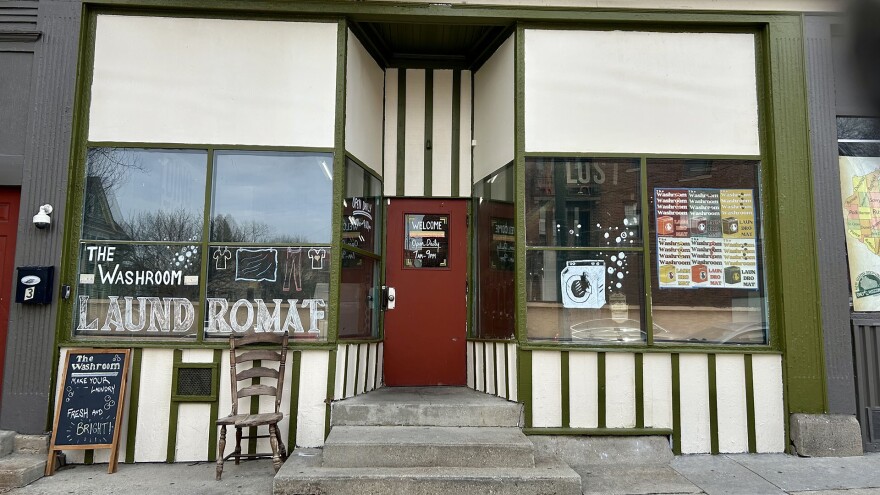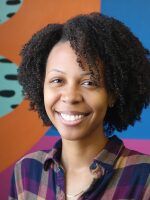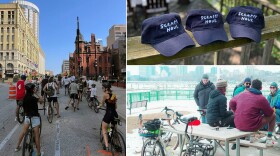They lift your spirits, prompt you to think, make you feel grateful and inspire you to do more. They connect you to our community, shining a spotlight on what's good about our city. They're stories that are Uniquely Milwaukee, sponsored by the Milwaukee Public Library.
Everyone needs it. An informal, neutral setting within a community that supports the individual. It encourages conversation. It embraces differences. It’s a park, a bar, a coffee shop, a hair salon, a library — any spot that welcomes diversity and, sometimes, action.
It isn’t home. It isn’t work. It’s a third place.
This isn’t a new concept. Sociologist Ray Oldenburg is credited with solidifying it in his 1989 book, The Great Good Place, and it has since evolved over the decades as our increased access to things like money, technology and travel – while great – have shifted our need and desire for a blended community.
“The idea that we spend so much time at home, then we leave our home and go to work, and then for most folks they leave work and go home, there's nothing necessarily wrong with that,” said Michael Carriere, urban historian and professor at the Milwaukee School of Engineering (MSOE). “In a lot of times that's almost done out of necessity because people may be working multiple jobs, they may have childcare issues. But, when your life is that bifurcated, you don't get the sociability that people need.”
Carriere does his own exploration of the topic in his book, The City Creative: The Rise of Placemaking in Urban America. On this episode of Uniquely Milwaukee, we dive into the significance of having places where people can just exist, including a new “third place” on the East Side called The Washroom.
At first, the activity of doing laundry may not seem social — until you give it more than a passing thought.
“I think a laundromat is a perfect place to make into a third space because you're getting folks from all different walks of life going to one space once a week,” The Washroom owner Kelli Johnson said. “That, within itself, is very powerful … building and creating community.”

Last year, the 27-year-old bought the former Murray Park Kwik Wash in the Murray Hill neighborhood. What set it into motion happened while she was studying abroad in Europe and went with a group to a laundromat that doubled as a bar. She wanted to create something similar at home.
“I think the whole point of the laundromat is for you to walk in and to have an entirely different experience,” Johnson explained. “I want this to be comfortable, and I also want this laundromat to be a reflection of the neighborhood that it's in and the city that it's in.”
Johnson has mostly kept the retro look from the ’70s but added contemporary touches. She installed some newer, more efficient machines (while keeping many of the originals). She’s painting the walls and has plans to solicit food-truck vendors, hire an employee and eventually build out a café space. There’s also a vending machine inside with typical items (detergent, chips and brownies) and some that aren’t so typical (contraceptives, Plan B and Narcan).
“I want to make sure that we are remembering what this used to be,” she said. “I don’t want to be a business owner that comes in, completely flips the space and makes it completely unaffordable for the community members who come here.
“On top of that comfort feeling is making sure that people know that they are welcomed in this space. So, I do have a vending machine with various items that literally speak to the customer base saying, ‘I don't care why you're here, it could just be for this or that, but you are welcomed.’”
Johnson is a homeowner with a day job, and this is her first foray into laundry service. As expected, she’s definitely learned some lessons and is grateful to her customers for being patient.
“I do work a 9-to-5, and this laundromat adds a good 10-20 hours to my week,” she explained. “Consider going to your local laundromat that’s owned by just one person who doesn’t have big pockets. The renovations and the updates, they will come.”

As Carriere from MSOE pointed out, in its current form, The Washroom already fits Oldenburg’s concept. “It's a place where you're going for maybe a certain reason,” he said. “I mean, everyone needs clean clothes. Everyone needs such a service, and so I'm intrigued by the idea.”
Carriere encourages people to take the “third place” idea more seriously and think beyond the original theory. He wants others to assess the value of these spaces, especially as cities continue to cut funding for public areas.
“I think the idea of a third space is useful,” he said. “But as someone like Oldenburg often kind of falls back on, he notes it's a coffee shop, it's a bar, which you still have to pay something in a sense to enter that space. My fear is that we focus on these, in some cases, really innovative spaces, while the less sexy things like public parks kind of fall by the wayside.
“Coming out of a discussion on third spaces, we should talk about space in general — What is a useful public space? What is a good private space? — as we start to sort of think about what we want the 21st-century city in particular to look like.”















